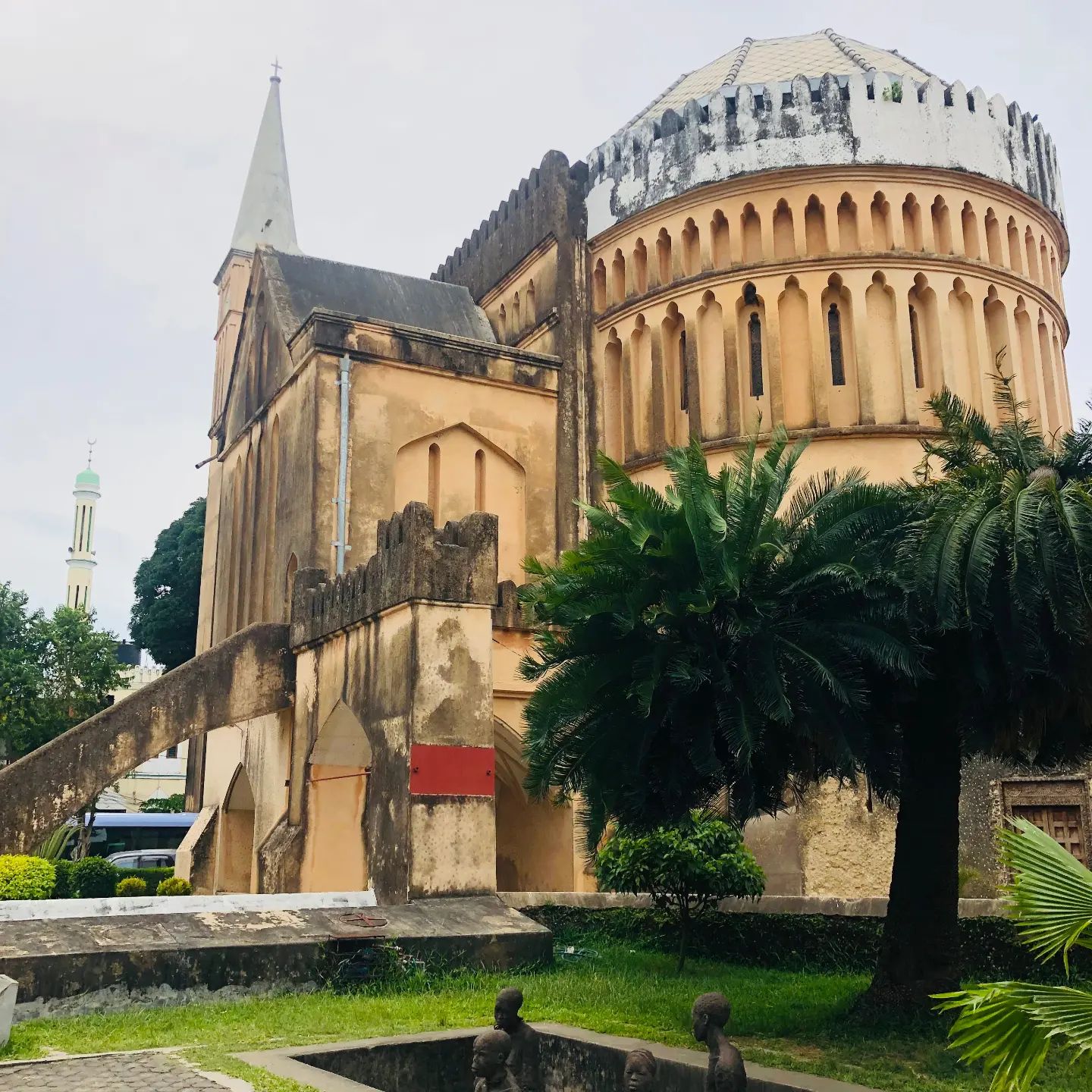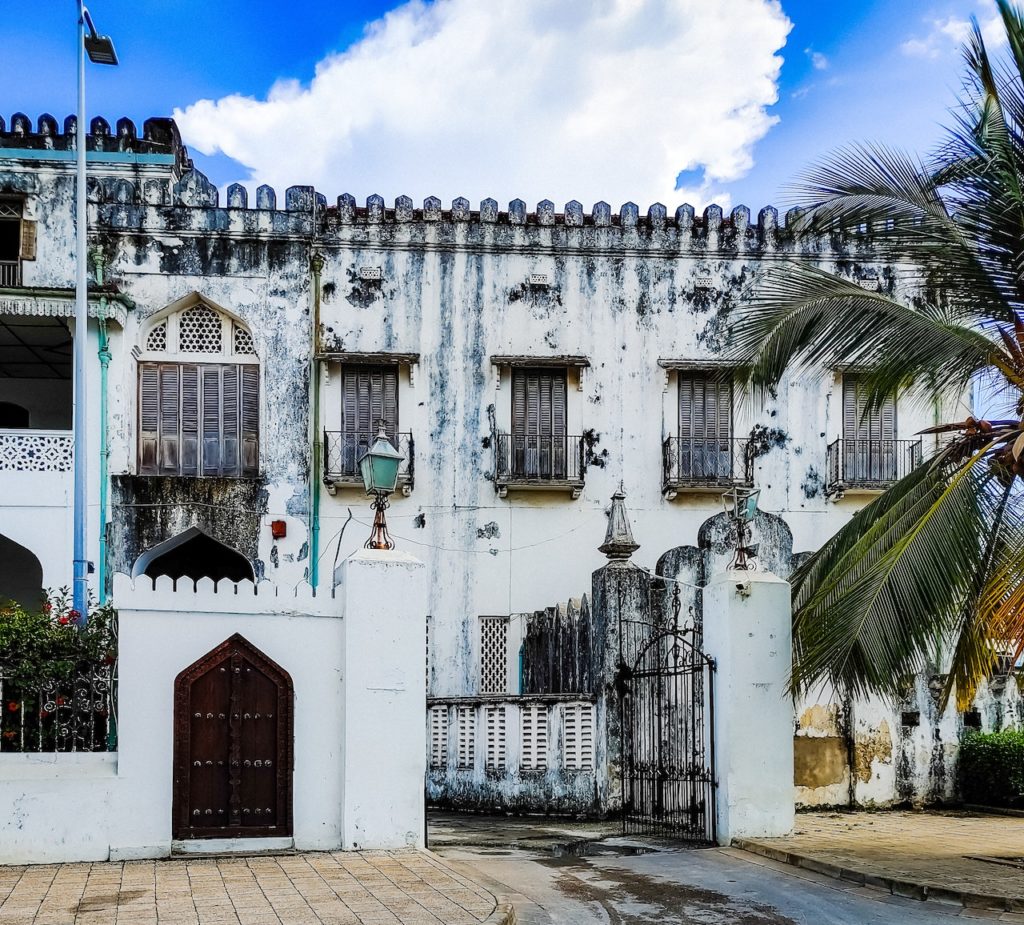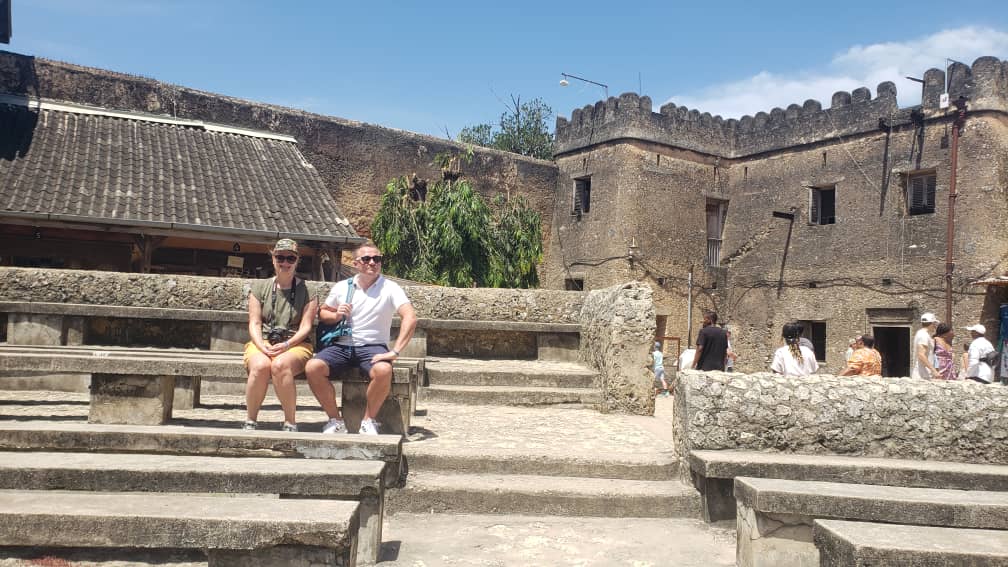Stone Town: A Glimpse into a Bygone Era of Timeless Beauty and Cultural Riches

Stone Town is a captivating destination located on the island of Zanzibar, off the coast of Tanzania. It is renowned for its rich history, mesmerizing architecture, vibrant culture, bustling markets, intriguing museums, and hidden gems waiting to be explored. As a UNESCO World Heritage Site, Stone Town offers a glimpse into a bygone era and immerses visitors in a world of timeless beauty and cultural riches.
History Unveiled: Exploring Stone Town’s Rich Heritage
Stone Town has a fascinating history that dates back centuries. As a major trading hub, it attracted merchants from Africa, Arabia, Persia, India, and Europe, who contributed to its vibrant cosmopolitan atmosphere. The city played a significant role in the East African slave trade, leaving behind haunting reminders such as the former slave market and the Anglican Cathedral, built on the site to commemorate the victims. Stone Town stands as a testament to the resilience of its people and serves as a reminder of the importance of acknowledging and learning from the past.
During the 19th century, Stone Town flourished as a prosperous trading center. It was a hub for the commerce of goods such as ivory, spices, and slaves. The intertwining cultures and diverse influences of the traders and settlers shaped the city’s unique character. Today, remnants of this history can be found in the architecture, traditions, and cultural heritage of Stone Town.


Stone Town’s Architectural Marvels And Iconic Structures
The architecture of Stone Town is a blend of influences from Arab, Persian, Indian, and European cultures, resulting in a unique and captivating style. As visitors wander through its narrow streets, they encounter grand structures with intricate carvings, ornate balconies, and stunning facades. The House of Wonders (Beit-al-Ajaib), one of Stone Town’s iconic landmarks, showcases the opulence of Zanzibar’s sultans with its impressive architecture and exhibits. Originally built as a palace for Sultan Barghash, it was the first building in East Africa to have electricity and an elevator. Today, it houses a museum that offers insights into Zanzibar’s history and culture.
Another architectural gem is the Old Fort (Ngome Kongwe), which was constructed in the 17th century by the Omanis as a defense against the Portuguese. Its sturdy walls and imposing presence speak to the tumultuous history of the region. Within its walls, visitors can explore the open-air cultural center, where traditional performances, exhibitions, and events take place. The fort is also home to a vibrant marketplace where artisans display their crafts, allowing visitors to engage with the local arts scene.
The Sultan’s Palace Museum (Beit al-Sahel) offers a fascinating glimpse into the lives of Zanzibar’s former rulers. This grand palace, with its ornate interiors and beautiful courtyards, provides a window into the opulent lifestyle of the sultans. The museum houses artifacts, photographs, and relics that highlight the rich history and cultural heritage of Zanzibar.
The traditional wooden doors that adorn many buildings in Stone Town are an integral part of its architectural charm. Each door tells a story and serves as a symbol of the owner’s status and profession. Intricately carved and adorned with brass studs, these doors are a testament to the craftsmanship and artistic traditions of the region.

Cultural Immersion: The Vibrant Traditions of Stone Town
Stone Town is a melting pot of cultures, where vibrant traditions and customs come alive. Visitors can immerse themselves in the rhythmic calls to prayer from the city’s mosques, which punctuate the daily rhythm of life in Stone Town. The architecture of these mosques, with their distinctive minarets and domes, showcases the influence of Islamic culture on the city’s heritage. The oldest mosque in Stone Town is the Malindi Mosque, believed to have been established in the 15th century. It features a blend of Swahili and Islamic architectural styles.
One of the highlights of Stone Town’s cultural calendar is the Zanzibar International Film Festival (ZIFF). This annual event, held in July, attracts filmmakers, artists, and cultural enthusiasts from around the world. It celebrates African cinema, showcasing a diverse range of films and hosting workshops, discussions, and live performances. ZIFF provides a platform for African filmmakers to share their stories and contribute to the vibrant cultural landscape of Stone Town.
Art galleries and cultural centers play an important role in showcasing the talents of local artists. The Emerson on Hurumzi Hotel is home to the Emerson Spice Gallery, where visitors can admire the works of talented artists and gain insights into the local art scene. The gallery features a variety of mediums, including paintings, sculptures, and traditional crafts. Engaging with local artists provides an opportunity to learn about their inspirations, techniques, and the cultural influences that shape their creations.
Stone Town’s community is known for its warm hospitality and friendliness. Visitors are welcomed with open arms and often find themselves engaged in lively conversations with locals. This provides a unique opportunity to gain a deeper understanding of the local culture, customs, and way of life. Stone Town’s vibrant culture is not just limited to festivals and events, but can also be experienced in everyday interactions with the people who call this place home.

Markets and Gastronomy: A Culinary Adventure in Stone Town
The markets of Stone Town are a feast for the senses. Darajani Market, located in the heart of the city, is a bustling hub of activity. As visitors meander through its narrow alleys, they are greeted by a kaleidoscope of colors, aromas, and sounds. Here, vendors proudly display an array of fresh produce, spices, seafood, and handicrafts. It’s a vibrant and bustling place, offering a true glimpse into the daily life of Stone Town.
The market is a treasure trove for food enthusiasts, offering a wide range of ingredients that reflect the diverse culinary heritage of Zanzibar. From aromatic spices like cloves, cardamom, and cinnamon to tropical fruits such as mangoes, coconuts, and passion fruit, the market showcases the abundance of flavors found in this region. Visitors can engage with vendors, learn about local ingredients, and even participate in cooking demonstrations to discover the secrets of Zanzibari cuisine.
Stone Town is renowned for its fusion of flavors, blending Swahili, Arabic, Indian, and European influences into a culinary tapestry that is truly unique. Traditional dishes like biryanis, pilau rice, and urojo soup are beloved staples, bursting with aromatic spices and local ingredients. Seafood lovers will be delighted by the abundance of freshly caught fish and shellfish, which are expertly prepared in a variety of mouthwatering dishes. Street food stalls offer an opportunity to sample local delicacies such as Zanzibar pizza, a delicious fusion of flavors wrapped in a thin crust, and mishkaki, succulent skewered meats marinated in spices and grilled to perfection.
For a deeper culinary experience, visitors can embark on a spice tour to one of the nearby plantations. These tours allow participants to witness the cultivation of cloves, nutmeg, cinnamon, and other aromatic spices that have shaped Zanzibar’s culinary identity. Guides provide insights into the cultivation process, the historical significance of these spices, and their importance in local cuisine.
Hidden Gems : Stone Town's Off-the-Beaten-Path Treasures
While Stone Town’s iconic landmarks captivate the imagination, there is a world of hidden treasures waiting to be discovered beyond the well-trodden path. Exploring the quieter neighborhoods of Stone Town, such as Kiponda and Mkunazini, allows visitors to experience the authentic essence of the city. Here, traditional houses with ornate wooden doors stand as testaments to the city’s architectural heritage. These doors, intricately carved and adorned with brass studs, open to reveal hidden courtyards where time seems to stand still.
Engaging with local artisans in their workshops provides a unique opportunity to witness traditional crafts being brought to life. Wood carving, copperwork, henna artistry, and basket weaving are just a few examples of the skilled craftsmanship that thrives in Stone Town. Visitors can observe the meticulous process behind these crafts, interact with artisans, and even try their hand at creating their own masterpiece.
For moments of tranquility, visitors can explore the peaceful ruins of Marahubi Palace. This historic site, once a residence for Zanzibar’s sultans, now stands as a captivating reminder of the city’s past. Surrounded by lush greenery, the ruins offer a serene escape where one can reflect on the passage of time and the stories that have unfolded within these walls.
Forodhani Park is another hidden gem that offers respite from the bustling streets of Stone Town. Located along the seafront, this lush park provides a tranquil setting for a leisurely stroll or a peaceful picnic. Visitors can admire the views of the Indian Ocean, enjoy the refreshing sea breeze, and revel in the beauty of nature. The park is particularly enchanting in the evening when local food stalls set up, offering a chance to savor delicious street food while enjoying the sunset.
In addition to the popular beaches frequented by tourists, Stone Town boasts secluded stretches of coastline that offer a serene escape. Beaches such as Mtoni and Bububu provide a tranquil setting for relaxation, with pristine sands and crystal-clear waters inviting visitors to unwind and soak in the natural beauty of Zanzibar.

Stone Town is a destination that enchants visitors with its rich history, awe-inspiring architecture, vibrant culture, tantalizing flavors, and hidden gems waiting to be discovered. Whether exploring its historical sites, immersing oneself in cultural traditions, wandering through bustling markets, or venturing off the beaten path, Stone Town promises a captivating experience that transcends time. As a UNESCO World Heritage Site, it stands as a testament to the city’s significance and invites visitors to immerse themselves in its enchanting charms.




